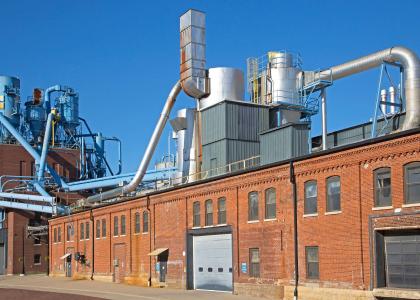The U.S. economy has tripled in size since 1970 and three-quarters of the new demand for energy comes from an amazing variety of advances in energy efficiency—not from other energy supplies. Going forward, the current economic recovery, and our future economic prosperity, will depend much more on energy-efficient behaviors and investments than we’ve seen in the last 40 years. In this report we outline three scenarios under which the U.S. could either continue along its current path, or by which we might encourage a greater level of productive investments in energy efficiency so that by the year 2050, we can reduce overall energy consumption by 40 to 60 percent. The savings would benefit all parts of the economy including the residential, commercial, industrial, and transportation sectors. These savings come from many current and advanced technologies but also from improved optimization of building, transportation, industrial, and electric power systems as existing systems are renovated or replaced. Critically, a pattern of productive efficiency investments would drive a net gain of almost two million jobs even as consumers save an average of $400 billion per year (the equivalent of about $2,600 per household). Indeed, the evidence suggests that without a greater emphasis on the more efficient use of our energy resources, there may be as many as three jokers in the deck that will constrain the robustness of our nation’s future economy. These include the many uncertainties surrounding the availability of conventional and relatively inexpensive energy supplies, a slowing rate of energy and therefore economic productivity, and a variety of pending climate constraints that may create further economic impacts of their own. Given all of this, advances in large-scale energy efficiency are by far the smartest investment for America.







